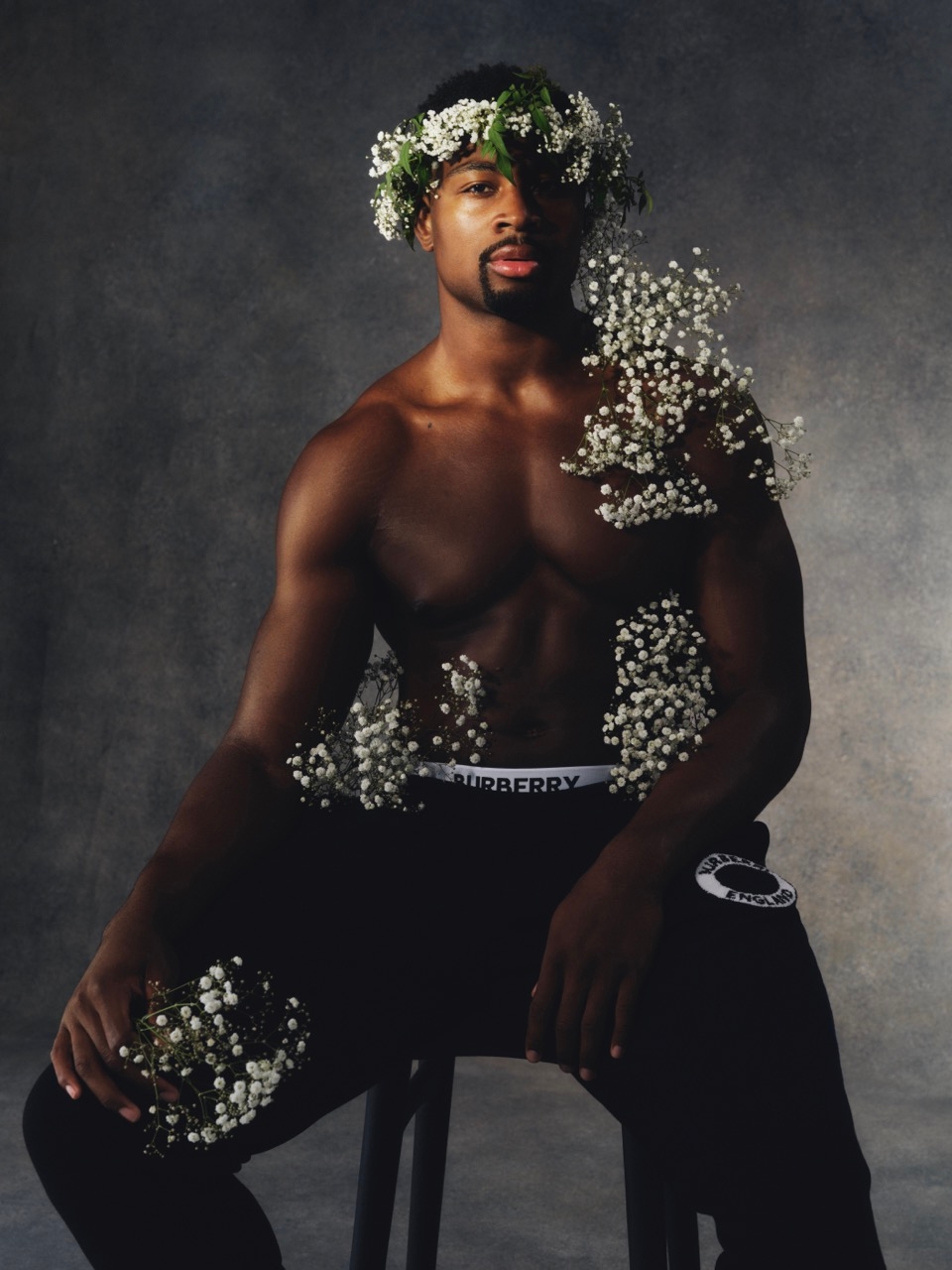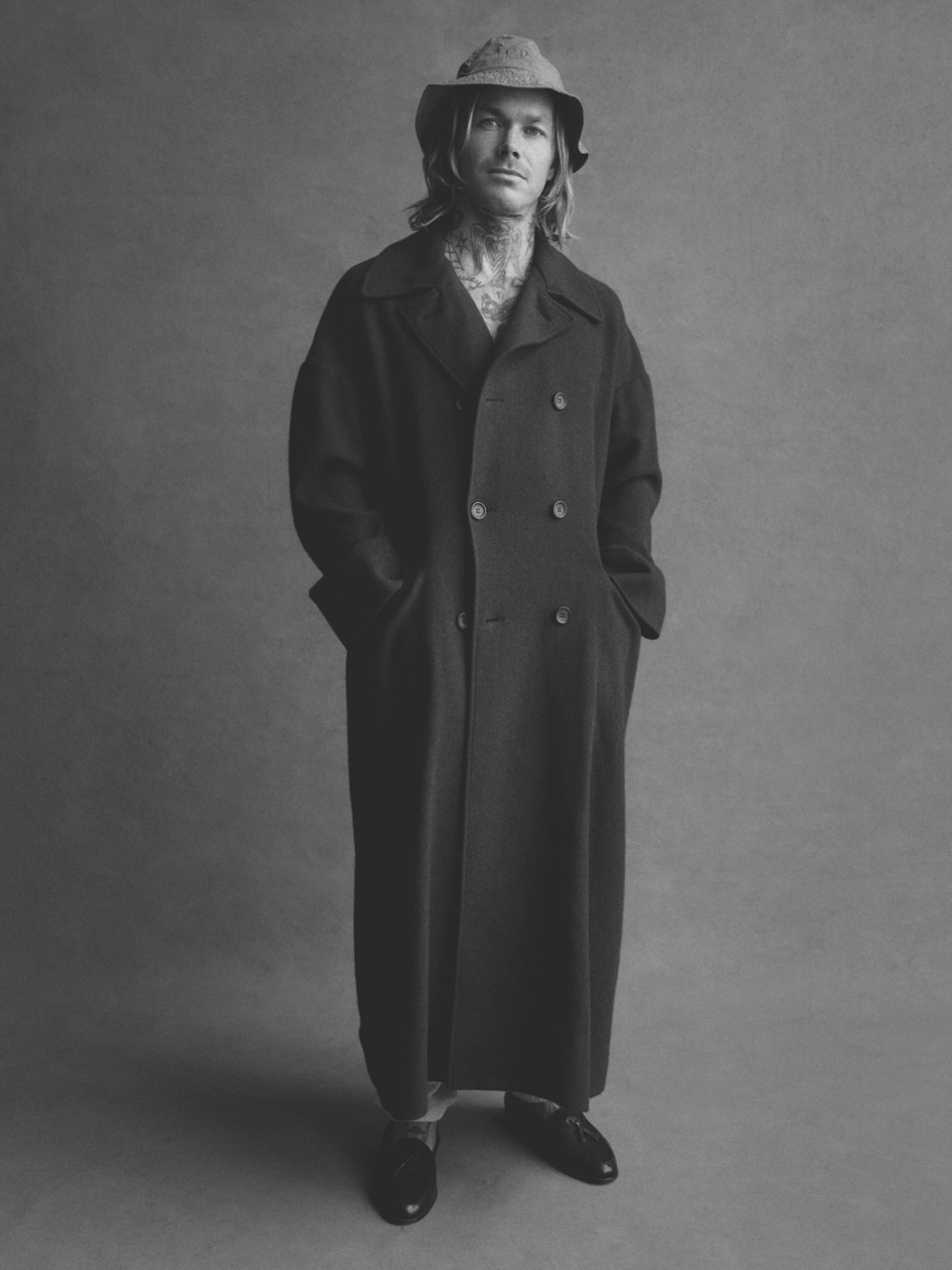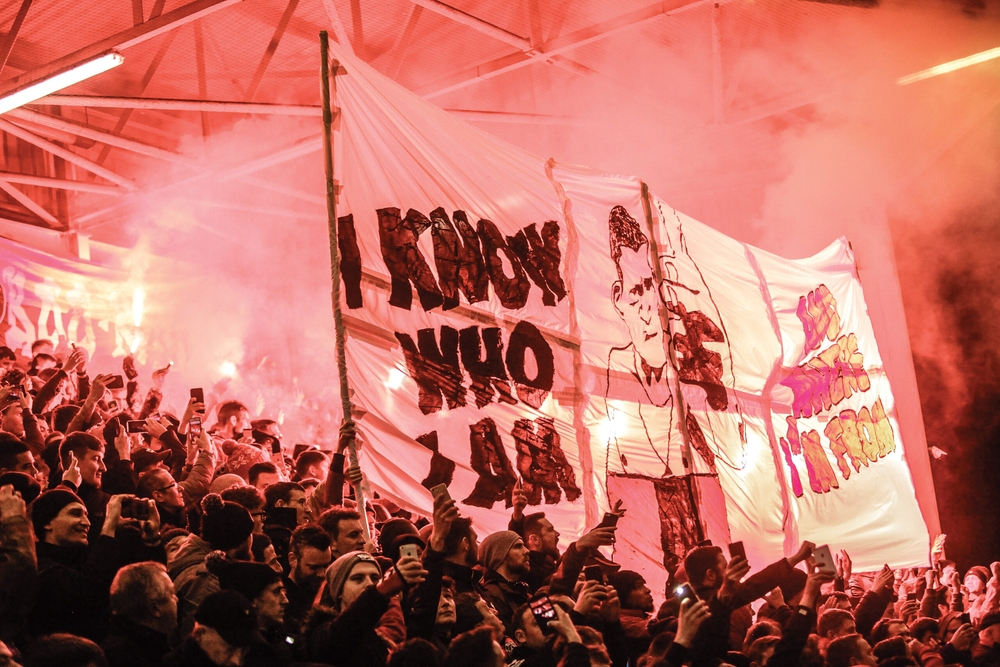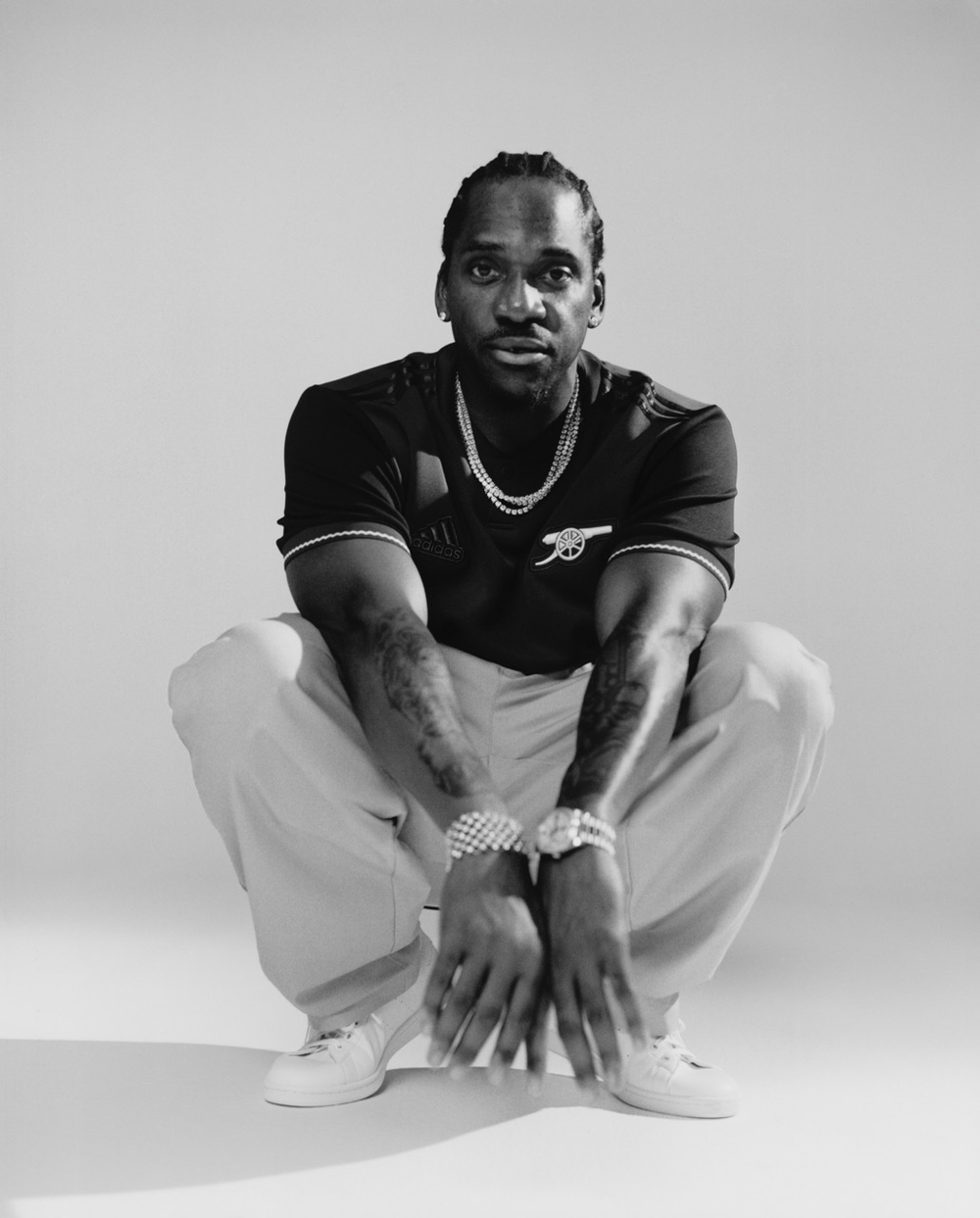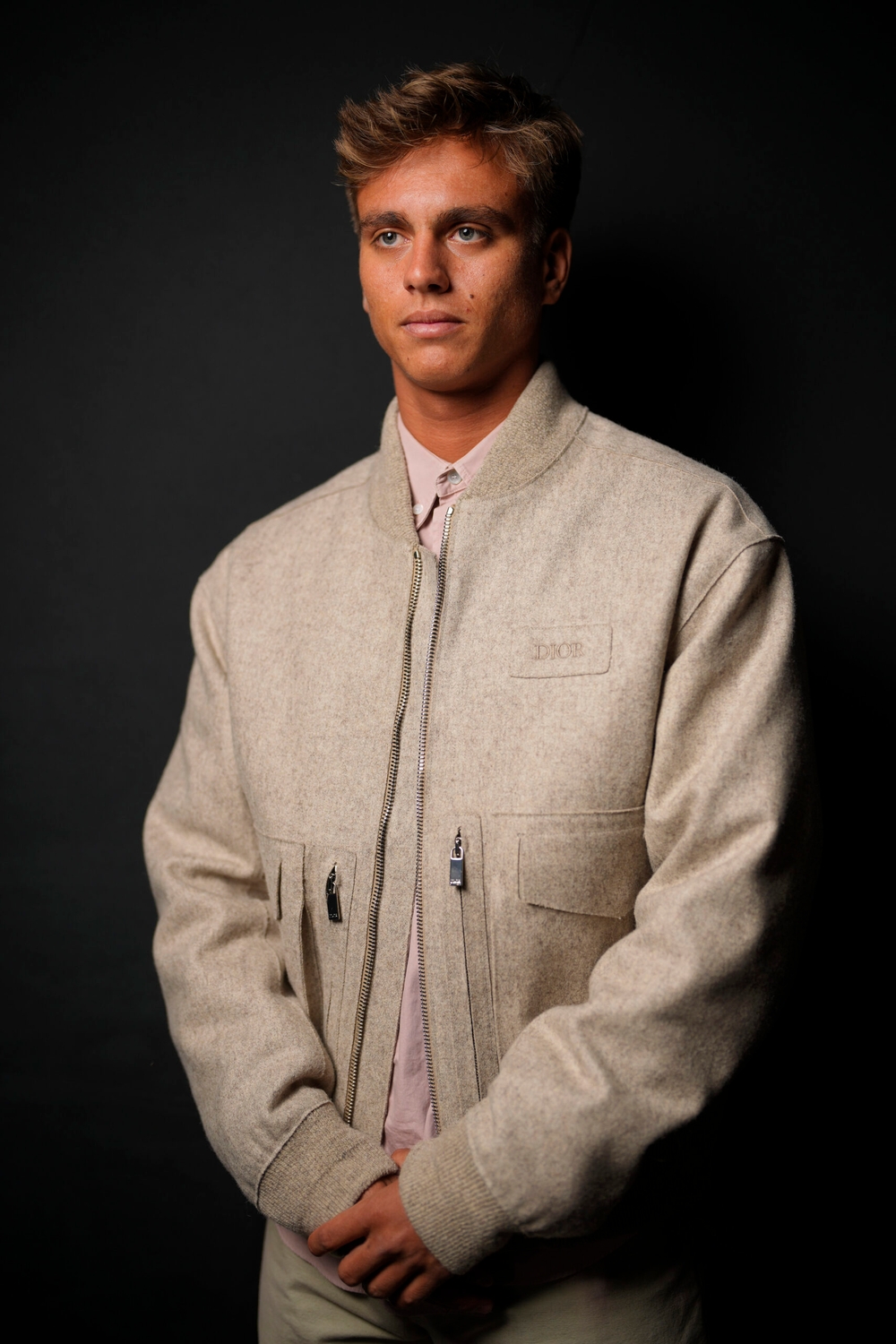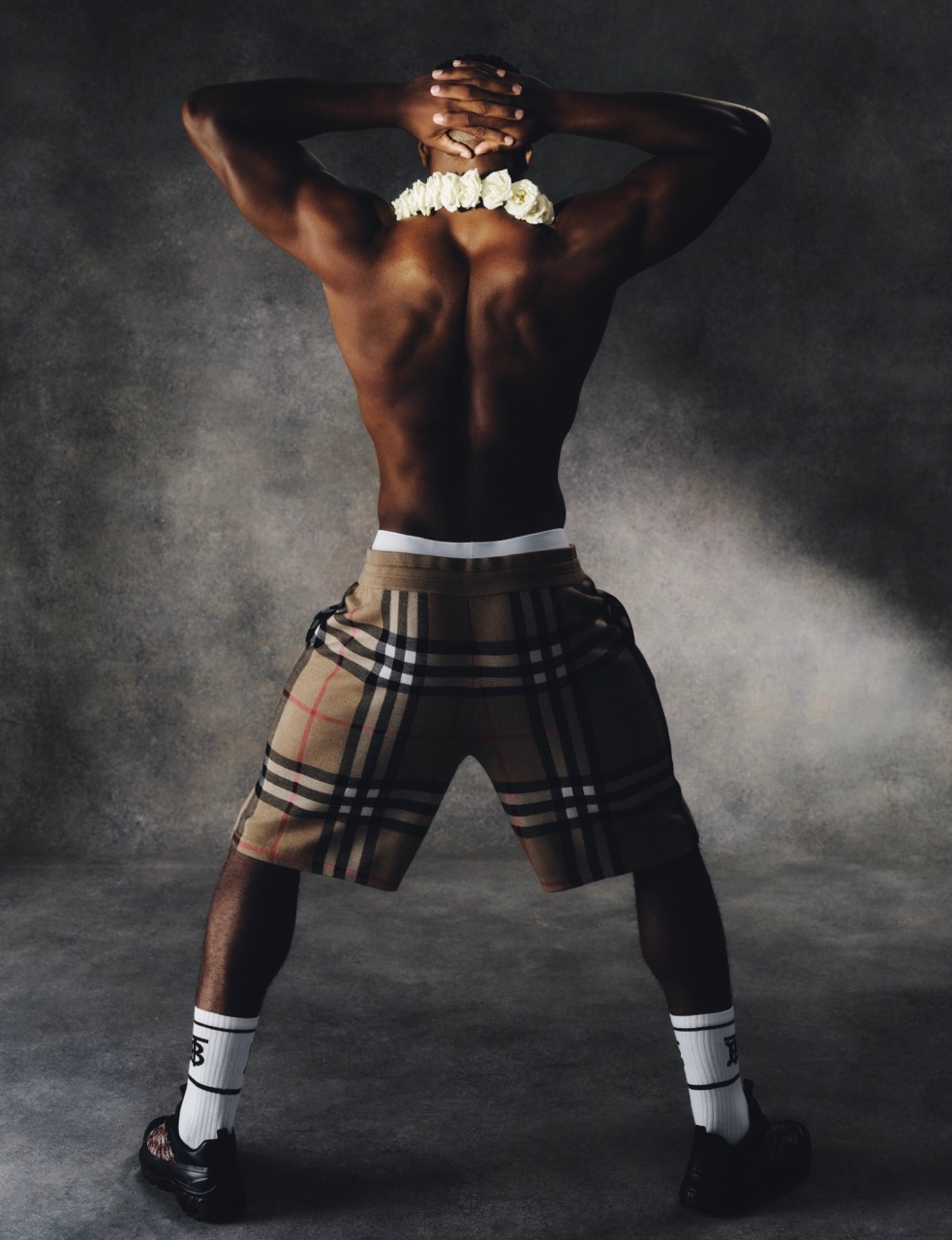
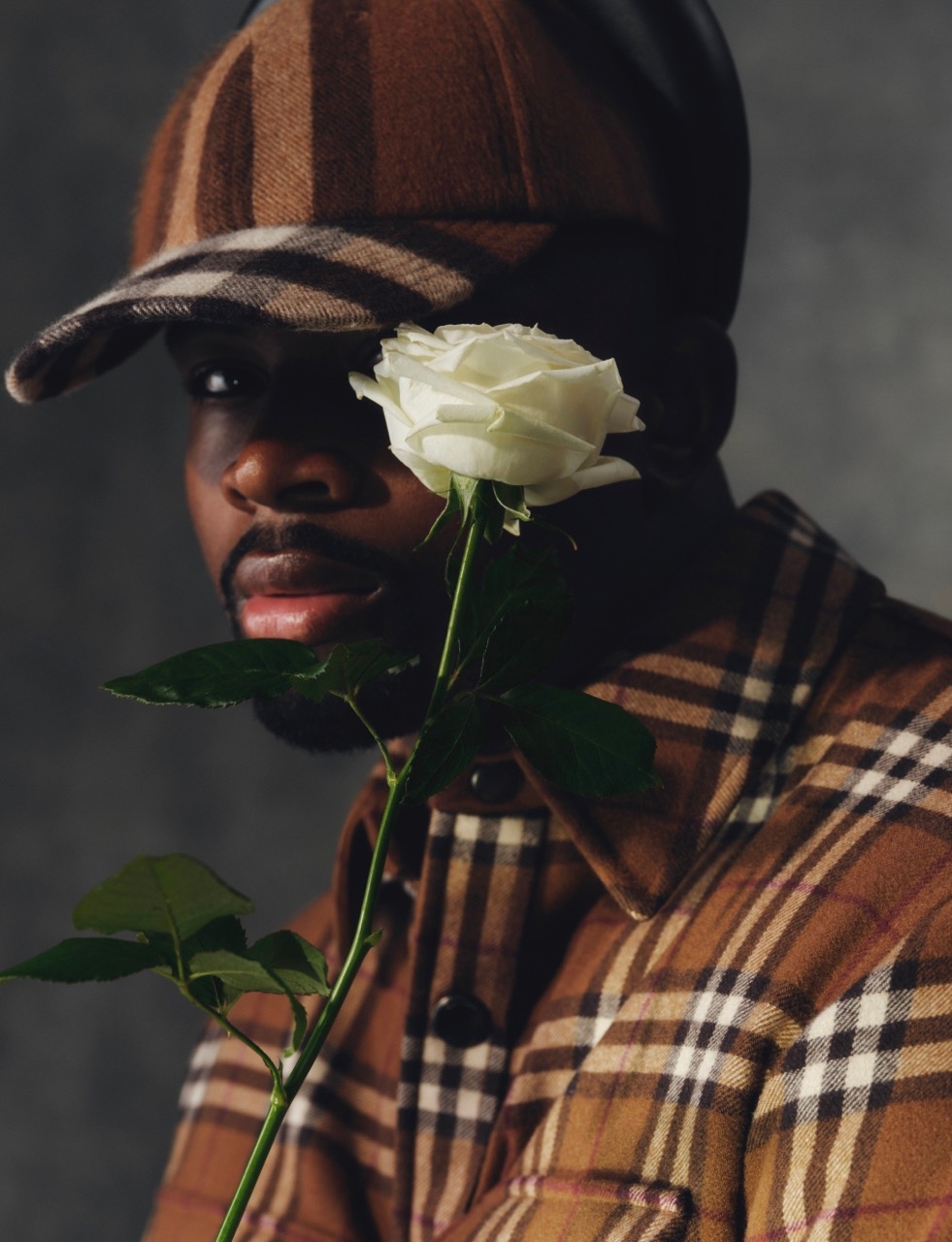
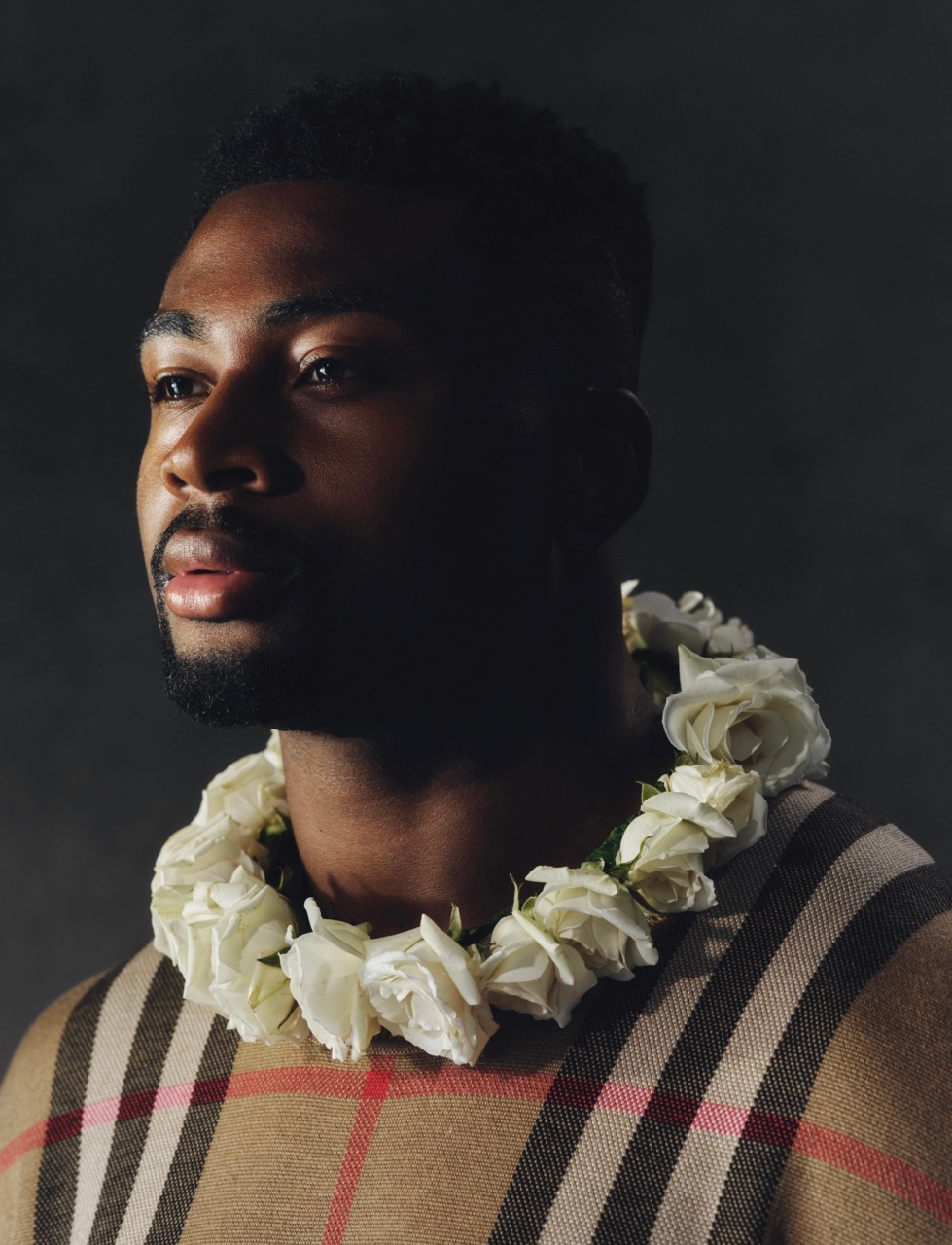
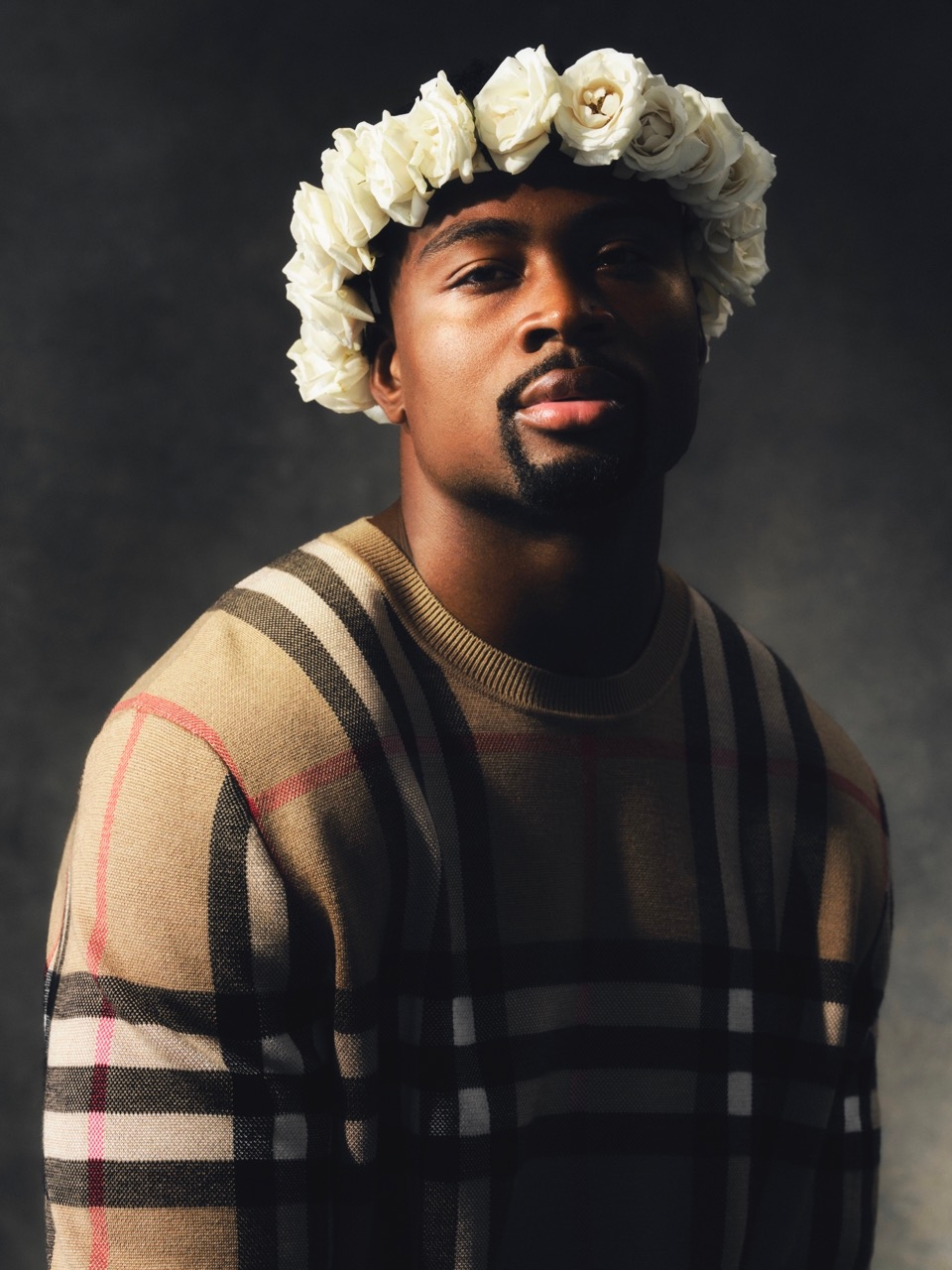
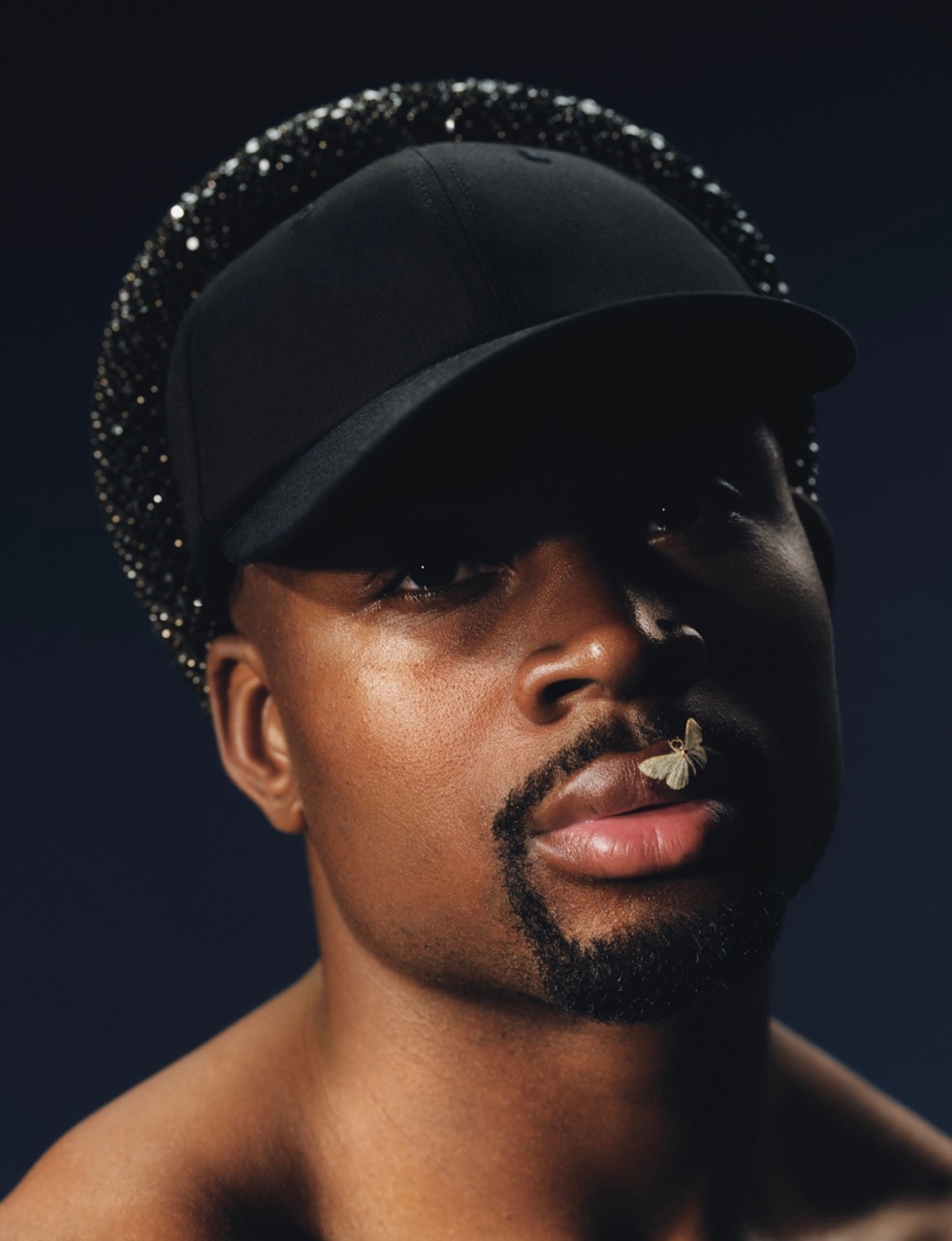

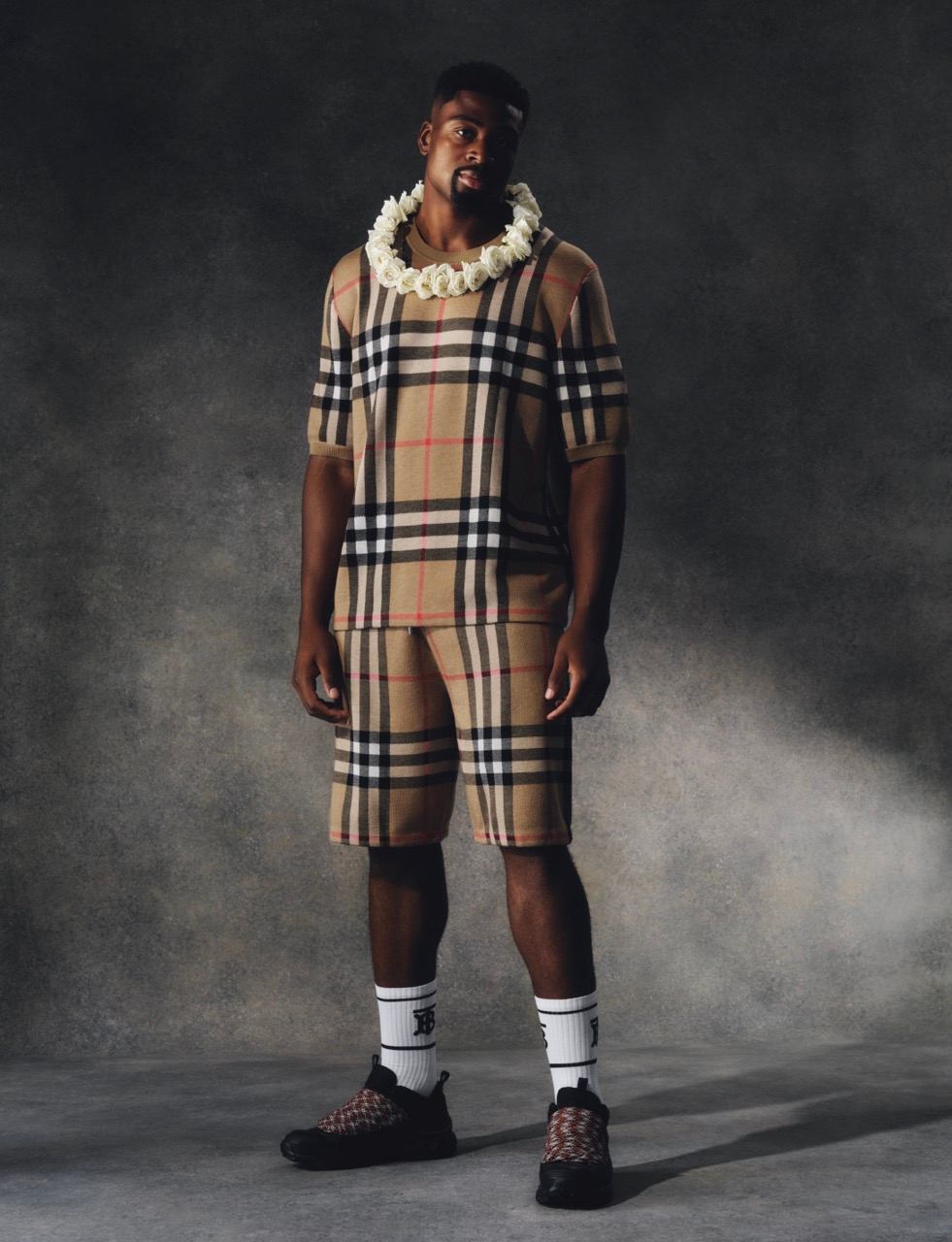
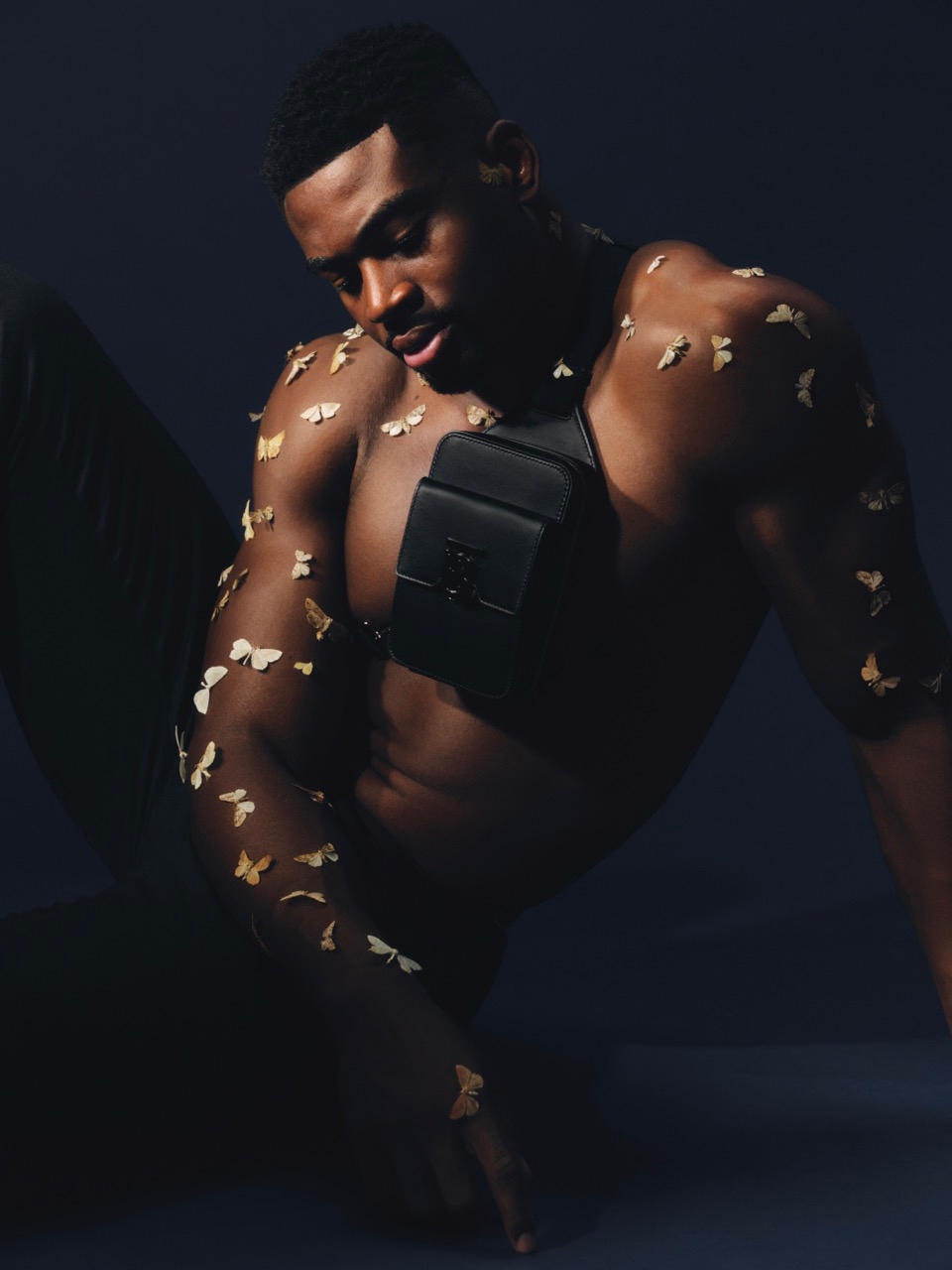
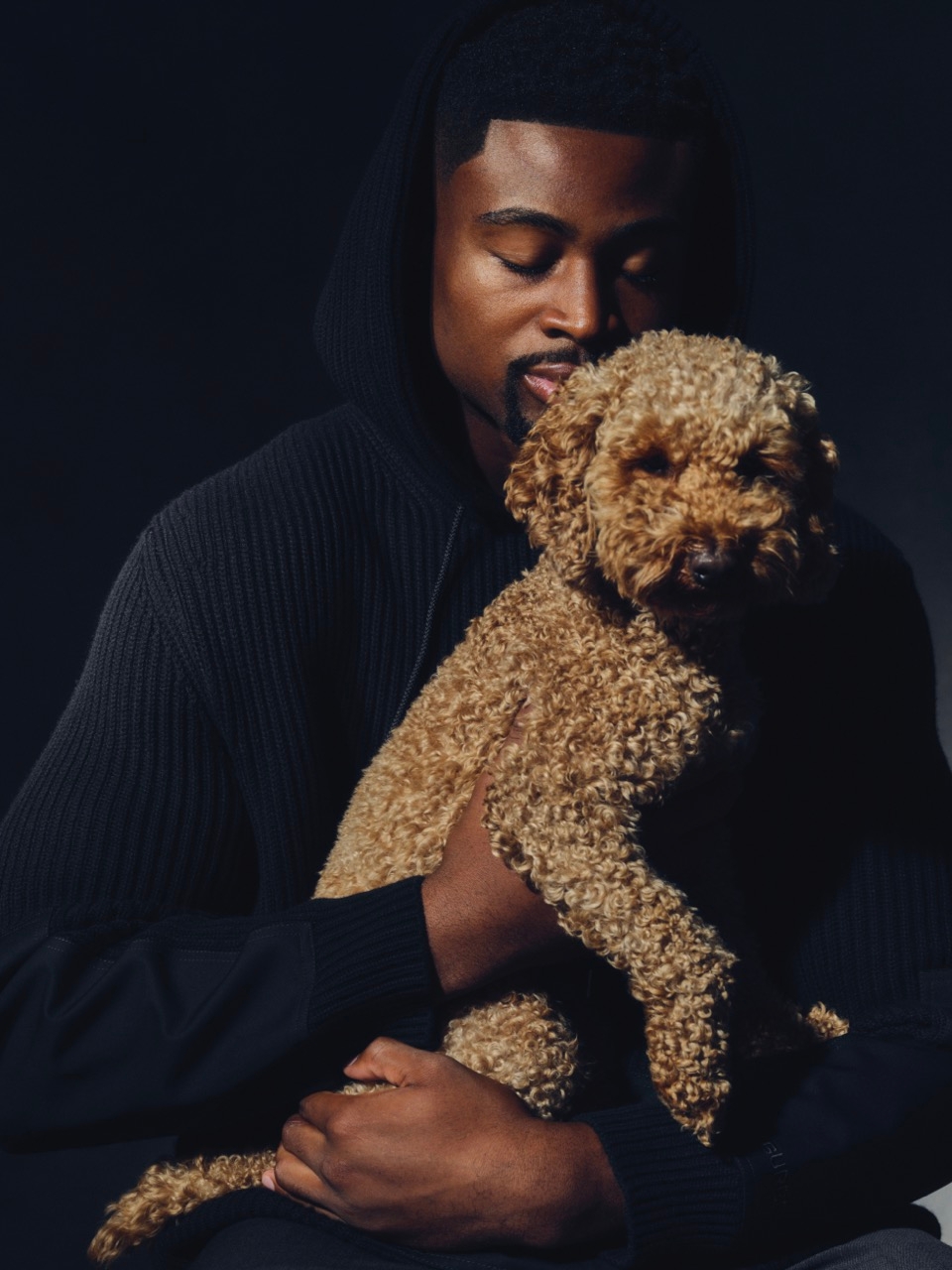
All clothes by BURBERRY
Christ Tshiunza was born in the DRC and arrived in Wales with his family in 2010. By his late teens, he was pushing 6’6” and 18st, had been a regional sprinter, and was the best high jumper of his age in Wales.
His school, Whitchurch High School in Cardiff, boasts Welsh legends Sam Warburton, Gareth Bale and Geraint Thomas as old boys. While still at sixth form, he signed a long-term contract with English Premiership side Exeter Chiefs.
After just a handful of games for his club, Christ was called up to the Wales squad for the 2021 Autumn Nations, making his debut aged 19. Announcing his selection, Wales coach Wayne Pivac stated, “He brings something nobody else in the country probably has in terms of height and athleticism.”
A serious injury stalled his progress in 2022, but he’s back fit for the new season. We meet in London, one day after the first game of the Premiership. He had started. They had won.



You’re qualified to represent Wales, England, France, and Congo; was it always going to be Wales?
Yes. I have so much respect for Wales as a country. I came at a young age, not really knowing what was going on, and the whole community, the schools I went to, were very good to me. And they gave me rugby. If I went to school in England I probably wouldn’t be playing.
Any rugby connection with the family?
Zero. I didn’t even know what rugby was when I arrived. And I haven’t been playing long. I was 15 when I picked up a ball. At the time I was playing football. I really liked football.
When did you realise you were good?
It just came naturally to me. The thing that kept me playing rugby was that suddenly I was bigger than everybody, and that perhaps made it a bit easier. I understood that for me to stay good at rugby I had to sustain this physical presence, and from a young age I already understood these attributes were what separated me from everyone else.
So were you folding up the other kids?
[Laughing] Humbly, yes.
When did you sense other people were seeing you as a prospect?
My first year of college, where I met my school coach Steve Williams. He played such a big part in my career so far and became my mentor. When he met me, he said, ‘There’s something going on here, and if you just trust me, I can make you anything you want to be, and you can do well out of it.’ That’s probably when I understood.
You were a lock back then, you played 7 yesterday. How do you feel about position?
Because I’m so young, any game time at a high level matters. My general response is I will play any position in the back five. I just want to play well. Put me in at 4,5,6,7,8, put me in the backline if you like.
What happened with England U20? There was some spice in the Welsh press about England trying to poach you.
Because of Covid, I hadn’t been able to play for over a year, and the international window English clubs agree to meant I couldn’t get a release to go and train with Wales. England U20s had already started playing and I called Wales up and explained everything before I agreed to play some games for England. Wales knew I was only going for game time, and so did England. Yes, England still played the old ‘why don’t you stay?’ etc. etc. And obviously, the media will say what they’re going to say.
How was your first home anthem?
Oh wow! We had the roof closed. So when the crowd sings, the vibrations bouncing around, you can actually feel it. It was really good.
Can you sing?
[laughs] No.
You missed the Six Nations last year due to injury.
Honestly, it’s like somebody put a curse on me. I’d done reasonably well in the Autumn Nations and then did well with the Chiefs at the start of the year, and Wales picked me for the Six Nations. First day of camp, they’re still testing for Covid, second day I get a positive result. So fine, I’ll just do my 10 days’ isolation. They were very good about this. They put me in a hotel suite on the ground floor with a nice garden and a huge room. I had a small gym set up, a treadmill in my room. It was crazy. So I’d train during the day and step outside in the evening, and I did that for 10 days, returned to training, then on the second day again, a grade 4 tear on my hamstring. The muscle came off the joint and split in two. Really, really bad.
Was that contact or running? And what was the recovery time?
Running. Nobody even touched me. I came around with a ball and burst into a gap, I put my foot down and my hamstring pinged. I spent six months out for that, from February until the end of July.


An injury like that must be tough, how detached from the squad are you?
It’s very lonely. The only time you really see the players is if you’re in the changing room together. You go through ups and downs on a long-term rehab. Everything had been going so well, and there was some ‘why did this happen to me?’ Then you find out you need an operation. Things were getting worse and worse. But you learn that that’s simply become your reality. For six months, day in, day out, you’re not going to be able to train, they won’t let you pick up a ball. It’s just every day trying to fix your hamstring.
Towards the end of rehab, when I started running a little bit with my physio, I flipped mentalities. Instead of ‘Why did this injury happen TO me?’, I thought ‘why did this happen FOR me?’
I feel if you do something so long you get complacent. I’d been playing rugby a while and then had that time out and you get impatient. But when I came back I fell in love with the game again. Then yeah, I looked for reasons ‘why this happened FOR me’ rather than ‘to’.
Exeter Chiefs, how did that come about?
Every year my school goes to this English rugby tournament and there are a lot of scouts there. This is where Exeter picked me up. Cardiff offered a contract and Quins were in the conversation too. I was torn on what team to go to.
Sam Warburton [former Wales and Lions captain] went to my school, and was still in contact with my school coach. My coach said, ‘Why don’t you speak to somebody who’s very successful and done it before?’ So we had Sam in and went through the pros and cons. That was the first time I’d met Sam; he’s a great guy and we still keep in contact.
Quins had no university option for me, so we ruled them out. It came down to Cardiff University or Exeter University, and Exeter have a higher reputation. So the uni was a big part of the choice.
And they gave you a four-year contract?
Yeah. And I signed at 18 still in my last year at sixth form. So for the first year of my contract I was literally paid to go to school. I couldn’t go from Cardiff to Exeter to train regularly, but they understood that if they didn’t sign me that year I would have signed with Cardiff. It was great for me, I’d just started driving so I used the money to buy myself a car, paid off my lessons, and was ready for uni.
And you’re still studying?
Just started my final year. Sports science.



How was pre-season?
Last year we didn’t do as well as we wanted to. The coaches put our focus onto pre-season and it was tough. We prided ourselves on being the hardest-working team in the Premiership, regardless of whether we win or not, and that’s what we said we wanted to get back to. Being the hardest-working team, I’m not going to lie to you, it was the hardest thing I’ve done in my life. We spent a week with the Royal Marines, that was real tough.
What did they focus on?
Breaking you.
They didn’t manage to recruit you, then?
I don’t think any of us ever want to go back there.
Strength and conditioning in-season, is that maintenance or do you still have improvement goals?
The S&C in-season follows on from pre-season. The whole of pre-season is a strength building block. There are no games so it’s a great opportunity for boys to really lift heavy and put stress on the body. As soon as the season starts, the sessions get tailored accordingly. Early, when we’re still fresh, we still do a bit more weight at lower reps. Then when we get to the middle of the season you’ll see that ‘maintain phase’ where we’ve already played quite a few games and there’s less need to lift heavy. The staff at Exeter are really good on it.
How many weight sessions a week then?
Three, usually, Monday, Tuesday, Wednesday. We are one of the only sides that front-loads our week: first three days on, Thursday off. Friday, team run.
On Monday we tend to do lowers first, then uppers after training. Tuesday you have an optional weight session; mostly the forwards are in there. And on Wednesday you have a whole-body session. So we target two lowers, two uppers and then an optional if you want it. After that everything is light before Saturday.
How long were you at Exeter until you thought, “Yeah, I’m good enough to be here”?
To be honest, I don’t think I’m even there yet. The players you’re surrounded by. You look at Jack Nowell and Henry Slade and the career they’ve had. They’re ten years older than me and there’s no way I can put myself on the same pedestal as them.
Who trains the hardest there?
Our captain, Jack Yeandle, really leads by example. But I’ve never met a more passionate man than Ian Whitten. Oh my! God knows how old he is, he’s a dinosaur: 35, 36, probably older [editor’s note: Whitten turned 35 in June 2022]. But that man just loves rugby. He works hard.
So much of the game seems based on mental intensity. How do you keep getting up for a match week in, week out?
In terms of intensity, we call it ‘finding our temperature’. For us, regardless of what the training session is, we want that temperature to be right. So on a Monday, for example, we don’t want it too high because we’re not going full bash. Then on a Wednesday we want that temperature to be higher. Everyone understands this and the onus is on the players collectively. If we feel it’s a bit low and the session’s a bit flat, we will get together in a huddle and discuss. Our captain is good at this. He’ll talk about how we’re cold compared and where we need to be. This is the responsibility of the leaders in the team: the captain, the 9, the 10, they’re good at taking control and making sure the temperature is right.
And you personally, pre-match. Do you have to do anything to get psyched up?
A lot of people I know want to get angry, bouncing off the roof before the game. I will literally listen to Adele. The calmer I am the better I am. I listen to chill house, really slow music. I respect everyone else’s process but that’s mine.
Have you ever lost it in a game?
Not recently. I’m young so I respect the people I play with. And also the opponent, I probably want to learn from them. So I never get to a point where I’m like ‘Yeah, you’re having it.’
What’s the difference between club and international training?
At the clubs you spend a lot more time with the coaches and so week to week it’s slight tweaks and little learns. It’s rare to see a club change whole-game protocol and methods, whereas when you go to camp, it’s a lot more intense, more information. Obviously international periods are only two or three months long, so you’ve got at most one month to learn everything and then the rest to play in. What I’ve found at Wales, though, is they’re very good at making it intense but making it clear. They don’t overload information.
Best moment on the pitch?
Wales vs Australia. Rhys Priestland’s kick in the last minute. They’d scored late to take the lead, and we kicked off to them. Kurtley Beale caught it and ran half the length, I don’t know where the speed came from but I chased him all the way down, tackled him and he knocked it on. Following that we got a kick to win the game.
Worst?
Last season, Newcastle at home, perhaps my fourth game for Exeter. I’m on the bench and thinking I’ll get maybe 10/15 minutes of play. Then 10 minutes in, our second row goes down. So now I have to play 70 and wasn’t mentally prepared. I came on and just couldn’t hit a ruck. The opposition got a few turnovers because I just couldn’t clear them out. That was bad. I was making a good effort and I’m not bad at clearing out. But that game, I don’t know what it was, I was trying and they just weren’t moving.
What’s the strongest part of your game?
It’s changing. I would have said it’s when I’ve got the ball in my hand and we’re in attack – but I would have said that when defences were smaller and I was the biggest lad on the pitch. But now everyone can hit you as hard as you hit them. Carrying is still a strength of mine, but now it’s lineout. Not a lot of people can move and jump as fast as I can. That’s what I’m starting to pride myself on.
And weakest?
Reading the game, as in movement around the rucks, when to stop, when to go. I think that’s because I’m still young, and nothing can replicate game speed, not in training. Things are moving quickly, and you have to think on the move, the picture you’re seeing, should you fold or stay, should you come round. But I think that’s just going to come.
Does faith play a part in your sport?
I come from a really Christian family and I’m a Christian myself, and from a young age we’ve believed that it’s God that gives us the strength that we have each day. I pray before every game, I’ll take a knee right before kick-off. We have a few guys who believe in our team, maybe four or five. They all wear crosses on their wrists. Two of us go to the same church.
Personal goals for the season?
I’ve set myself some pretty big goals.
Can you share them?
No. They’re almost personal ties with myself, and I don’t want to put them out. This is for me to hit. I will say, though, we have the World Cup after the end of this season.

All clothes by BURBERRY
